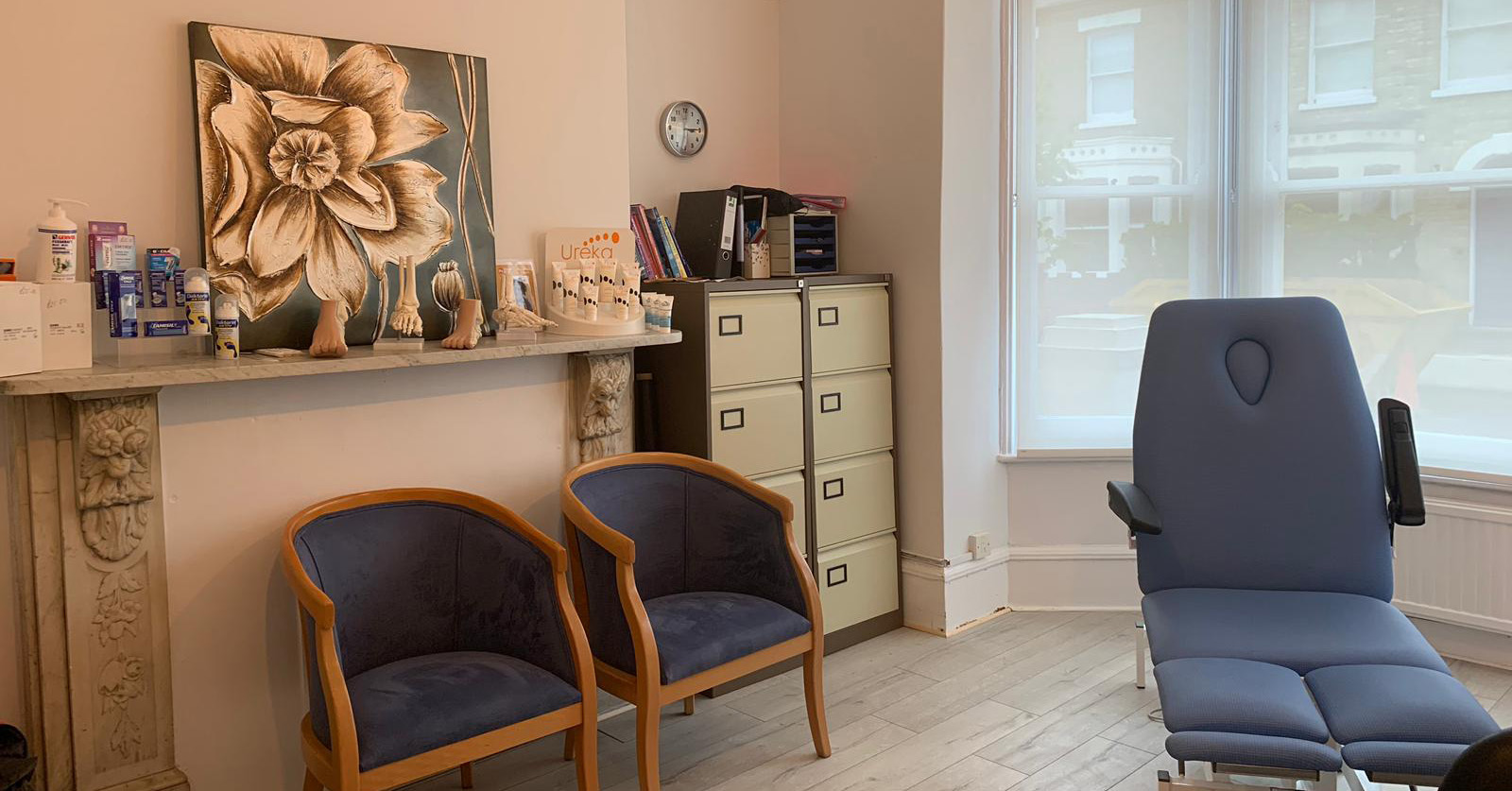Verrucae
Treatment

Verrucae, commonly known as plantar warts, are generally viewed as a low-risk infection caused by the Human Papilloma Virus (HPV). As podiatrists, we have ample experience diagnosing and treating verrucae using the latest techniques and technologies.
Why Seek Treatment for Verrucae?
Verrucae can be unsightly, but more importantly, they can cause discomfort and pain, making it difficult to walk or stand for long periods. They can also spread to other parts of the foot, or even to other people, so it’s essential to seek treatment as soon as possible.

Why seek treatment for verrucae?
Verrucae can be unsightly, but more importantly, they can cause discomfort and pain, making it difficult to walk or stand for long periods. They can also spread to other parts of the foot, or even to other people, so it’s essential to seek treatment as soon as possible.

Treatment Options for Verrucae
At Cutting Edge Podiatry, we offer various treatment options depending on the location, size, and severity of the verrucae lesion as well as the period they have been present.
We will go through all the treatment options available to you and discuss the advantages and disadvantages of each option so that you can make an informed choice.
Treatment options include:
SWIFT Microwave Therapy:
SWIFT is a new technology licensed for treating skin lesions in Podiatry and Dermatology.
The treatment involves delivering microwave energy to the affected area, creating heat and destroying the virus causing the verrucae.
The procedure is quick, lasting only a few minutes. SWIFT Microwave Therapy has a high success rate and can be used to treat multiple verrucae in a single session. You can return to normal activities immediately after the procedure, making it a convenient option for those with busy lifestyles.
K-Laser Therapy:
K-laser therapy is a non-invasive therapy that uses a specific wavelength of light to stimulate the body’s natural healing process. We use K-laser treatment to effectively treat verrucae by targeting the affected area with the laser, promoting blood flow and cell regeneration, and ultimately breaking down the virus causing the verrucae. The treatment is painless and has no known side effects, making it a safe and effective option for patients of all ages.
Dry Needling (Falknor’s Needling)
Falknor’s needling, also known as dry needling, is a minimally invasive procedure for treating verrucae infections. The technique involves puncturing the verruca with a sterile needle, causing micro-trauma to the area and stimulating an immune response.
This response helps to break down the virus and eliminate the verruca. The procedure is quick, effective, and has a high success rate. Patients may experience mild discomfort during the procedure but can return to normal activities immediately after.
Other treatments
Other treatment options include cryotherapy and salicylic acid. We will explain all the available treatments to you and advise on the most suitable ones for your case.
Frequently Asked Questions
How do you catch the virus?
You contract the virus by contacting the viral particles (virions) from an infected hand or foot. It can be very contagious, with the virus entering the skin epithelium.
Skin health may determine susceptibility. For example, macerated skin with high water content may make it more susceptible to entry and spread.
Areas prone to increased pressure and mechanical stress, such as corns can often have a verruca beneath or beside, making diagnosis more complicated.
Do verrucae have roots?
The verruca virus enters the skin through the epithelium. It is skin deep only and does not enter the body’s living tissues any deeper. Therefore, they do not have roots.
How long is the incubation?
As the verruca virus enters the cells of the epithelium, it replicates rapidly 10-200 times. How long it takes and how successful it is at replication depends on its HPV sub-type and the individual’s immune system.
Why can't my immune system overcome it?
When a virus infects an individual, the virus replication activates the T-cells, our immune system’s response to a ‘home invasion’. The HPV does not do this. Instead, it successfully infiltrates the skin and replicates within the cells without setting off any alarms. Not only does it not set off the alarms, but it actively produces a suppressant to inhibit the anti-inflammatory response that the infection would usually make.
Why do some people get it, and others don't?
It isn’t a co-incidence that one person in a shared house of six gets the virus, and the others don’t. Some people may have a reduced natural immune system, making them more susceptible. Research is ongoing in this area.
Why do some respond better to treatments than others?
Some people have a better immune response than others, and we don’t know why. For example, children generally respond quicker than adults, and their immune response tends to be activated quicker.
I have had a treatment, and it made it worse.
It can be possible for there to be latent virion particles in the surrounding area. When treatments cause damage to these surrounding the virions can cause further infections. This can be at the time of treatments, or they are dormant for months/years and come back anytime they want to.
Can my medication affect treatment outcomes?
Yes. Any medications such as anti-inflammatories or steroids which reduce the body’s immune response will potentially dampen the effectiveness of any treatments.
I have hay fever; can that make it worse?
Yes. Hypersensitivity reactions are generally managed with medication to reduce the body’s over-reaction. This reduction and suppression of the immune system can offer an excellent opportunity for HPV.
I suffer from a lot of stress. Can that affect it?
Having HPV can be stressful and cause anxiety. The stress of any description, whether work-related or otherwise, can overload our immune response, making it weaker for the HPV to take advantage of and harder for successful treatments.
Does my reduced immune system mean they'll never go?
Possibly. Individual responses vary, and people with heavily compromised immune systems may not overcome the virus. Others who have a reduced system may take longer to overcome the virus. Generally, people are aware that their immune system is affected, and these people may need to manage expectations and be more patient with treatment times.
Are there any other factors which may affect treatment success?
Yes. Some people may miss the genome that allows them to build an immunity to HPV. There is, unfortunately, no way of knowing this is the case. Usually, it becomes apparent when all forms of treatment have been tried yet to no avail.
Why choose us?
At Cutting Edge Podiatry, we are committed to providing the highest quality foot care services to our patients. Our team of registered and experienced podiatrists has the knowledge and expertise to diagnose and treat a wide range of foot conditions, including warts and verrucae. We use the latest technology and techniques to ensure you receive the best care possible.
If you suffer from painful or unsightly warts or verrucae, don’t hesitate to contact us today to schedule an appointment. We will work with you to alleviate your foot problems and get you back on your feet.
Book Your
Appointment
Please book online or phone us to see a podiatrist.
No referral required.

Servicing feet in Cambridge since 2012







Disclaimer: Our clinic is not easily accessible for those with disabilities as the toilets are located upstairs. However, we do have a treatment room available on the ground level.
If you require a downstairs room, kindly specify this when making your booking either online or with our receptionist. Thank you for your understanding and cooperation.
